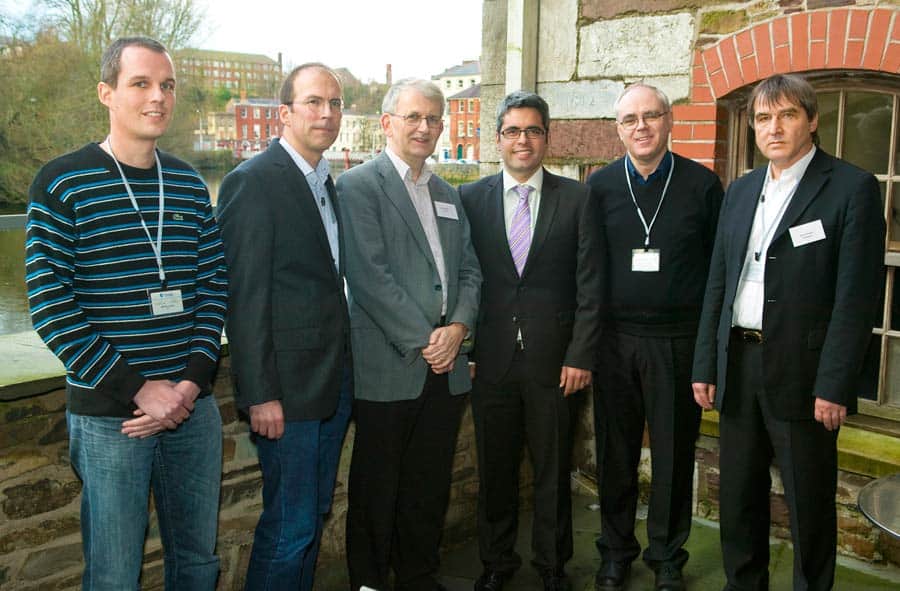DEEPEN project team (L-R): Prof. Mathieu Luisier (ETH Zurich), Dr Lutz Geelhaar (Paul Drude Institute Berlin), Prof. Eoin O’Reilly (Tyndall), Dr Alvaro Gomez-Iglesias (OSRAM Opto Semiconductors), Dr Fabio Sacconi (TiberLab) and Dr Axel Erlebach (Synopsys).
Scientists at Tyndall National Institute, Cork, are leading a European research project which will develop a test environment to help create the electronic and photonic devices of the future.
Led by Prof. Eoin P. O’Reilly, head of Theory, Modelling and Design Centre, Tyndall National Institute, DEEPEN will involve Tyndall-based researchers working in close partnership with research teams from across Europe – ETH Zurich (Switzerland), OSRAM Opto Semiconductors (Germany), Paul-Drude-Institut für Festkörperelektronik (Germany), Synopsys (Switzerland) and Tiberlab S.r.l. (Italy).
The project will use the combined expertise in device design and nanomaterials of its members, to help revolutionise the design and implementation of future electronic and photonic devices.
Entitled ‘DEEPEN’ (from atomic to device explicit simulation environment for photonic and electronic nanostructures), the three-year, EU-funded project is being formally launched this week in Athens, Greece at the Industrial Technologies 2014 Conference. The conference integrates nanotechnology, biotechnology, advanced materials and new production technologies, and offers opportunities for developing valuable research and industry collaborations by showcasing cutting-edge research, latest innovations and rising companies from all around Europe.
DEEPEN is a direct response to industry’s need to track and analyse performance at the atomic scale of a design process. To address this issue, researchers are looking to develop an efficient and robust framework that allows different computer codes to be merged. Using this open-source framework, the integrated simulation tools will enable developers to track a device’s overall performance changes at a particularly detailed and precise level during testing.
Speaking at the conference, Prof. O’Reilly said: “The DEEPEN project gives us an opportunity to work with leading academic and industry partners in this challenging but highly rewarding area. Our work will have a direct impact on future device design and optimisation. In addition, our development of open source codes will help to open up this field to the wider research community.”



